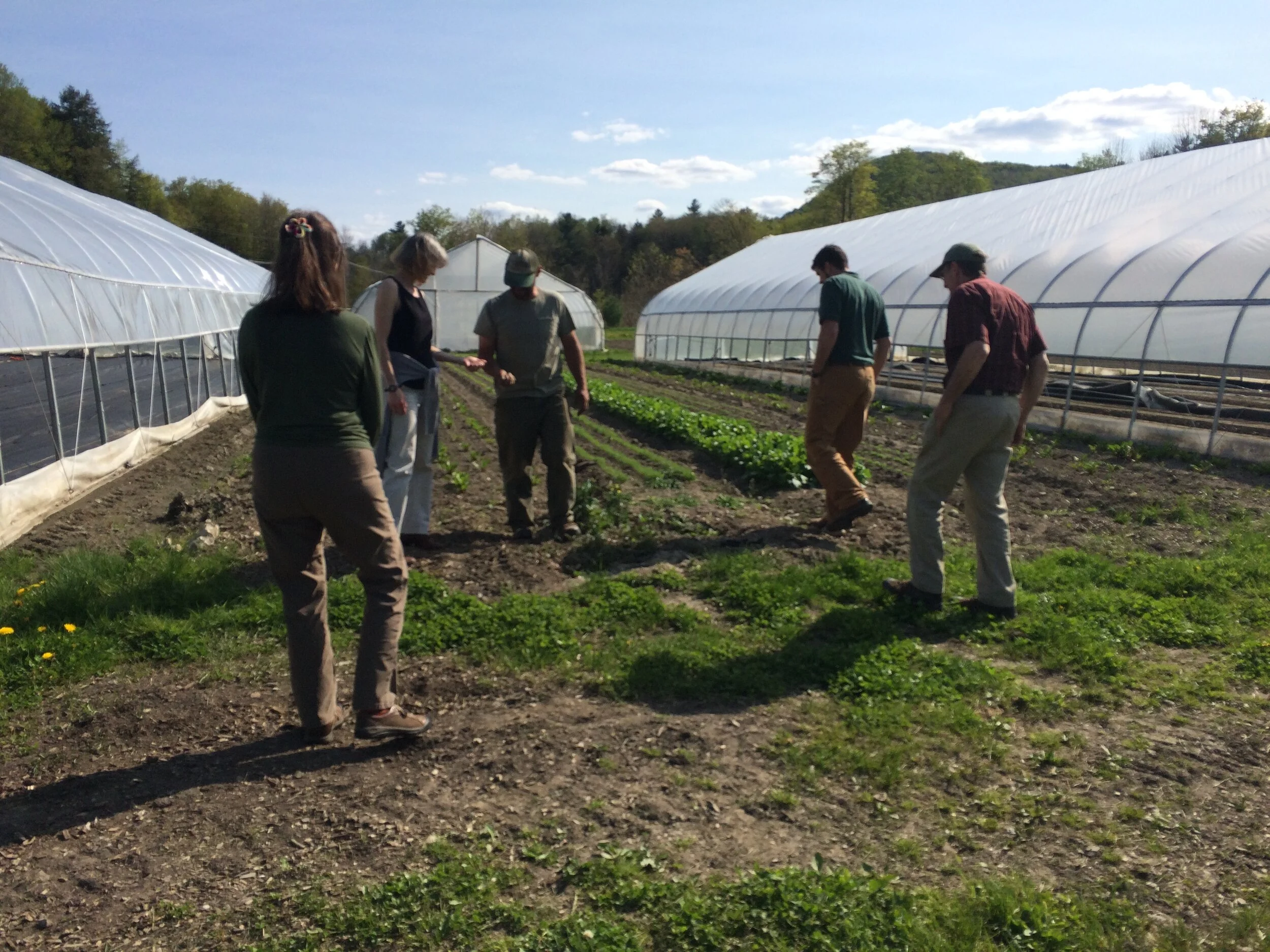Sara Delaney, Ph.D. student in the University of Maine Agroecology Lab
Sara Delaney, incoming PhD student in the University of Maine Agroecology Lab, was recently awarded a NE-SARE Graduate Student Grant. Her project is titled How does climate adaptation knowledge spread in advisor-farmer networks? Tracking the long-term impacts of the Northeast Climate Adaptation Fellowship. The core research Delaney will explore is how peer-to-peer programming influences agricultural growers and advisors over time.
It is widely accepted that farmers learn well from other farmers. Because of this, farmer-focused professional development training often leverages peer-to-peer learning. The short- and medium-term effects of this mode of education, including changes in knowledge and intention to act, are typically documented through short-term program evaluation. However, efforts to document long-term effects, such as behavior change and collaborative innovation, are more sparse. The purpose of Delaney’s project is to understand how peer-to-peer programming and Communities of Practice (CoP) influence growers and agricultural advisors over time.
To answer her research questions, Delaney will use the Climate Adaptation Fellowship (CAF) as a study group. The CAF program is a one-year pilot program composed of 37 farmers and agricultural advisors from across the northeastern United States. One of the central objectives of the program is to enhance participant confidence and skill with climate adaptation, mitigation, and communication.
The program started with a remote workshop in January 2021, which included presentations, discussions and interactive activities. Next, “Fellows'' were charged with creating individualized work plans, which include on-farm risk assessments, adaptation budgets, and outreach to other farmers and/or agricultural advisors. The CAF program will conclude with a second workshop in January of 2022, where the emphasis will be on the Fellows sharing their experiences and what they’ve learned with each other.
Delaney will follow Fellows for two years post-program, tracking: (a) how they develop climate adaptation knowledge, confidence, and outreach skills; (b) outcomes of CAF-inspired practices trialed on farms, and (c) the spread of concepts through farmer-advisor networks using social network analysis (SNA). She will conduct farm visits and in-depth interviews, and two surveys, generating rich and long(er)-term data that will enable her to see if peer-to-peer learning leads to sustainable practice adoption. Additionally, she will explore how climate knowledge and innovation generated through CAF ‘ripples-out’ over time.
Delaney’s findings will allow agricultural outreach and service providers to better understand the long-term effects of their programing, specifically whether or not the peer-to-peer modality is as powerful as assumed. Advisors on the project include Dr. Rachel E. Schattman (University of Maine School of Food and Agriculture), Erin Lane (USDA Northeast Climate Hub), and Dr. Marjorie Kaplan (Rutgers Climate Institute).
Northeast Sustainable Agriculture Research and Education (NE-SARE) offers grants and education to farmers, educators, service providers, researchers and others to address key issues affecting the sustainability of agriculture throughout the Northeast region. Delaney’s project is supported by the National Institute of Food and Agriculture, U.S. Department of Agriculture, through the Northeast Sustainable Agriculture Research and Education program under subaward number GNE21-253. The Climate Adaptation Fellowship is also supported by SARE ‘s Professional Development Program through subaward number ENE20-164-34268, with additional support provided by the USDA Northeast Climate Hub, the Rutgers Climate Institute, and USDA NIFA through the Maine Agricultural and Forestry Research Station (MAFES), Hatch project #1022424.




